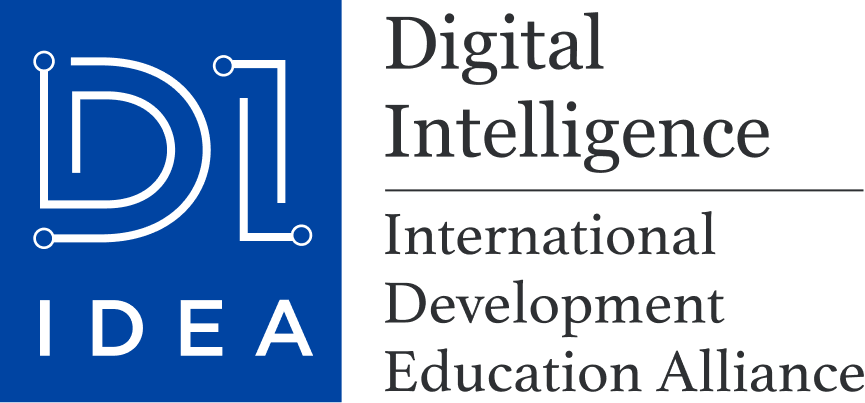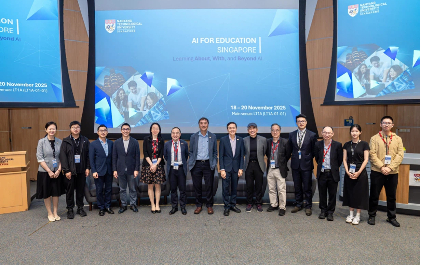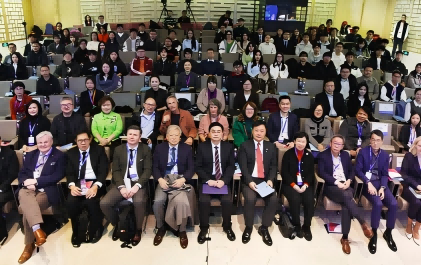On the afternoon of February 29, 2024, the inaugural work meeting of the Digital Intelligence International Development Education Alliance (DI-IDEA) took place simultaneously online and offline. Gong Qihuang, President of Peking University, addressed the opening ceremony. Leaders and other representatives from over 20 DI-IDEA members attended, including the University of Cambridge, the University of Strathclyde, the University of Auckland, Korea University, the American University of Sharjah, Mahidol University, the University of Malaya, the Chinese University of Hong Kong, the University of Macau, Fudan University, Xi’an Jiaotong University, and Wuhan University.
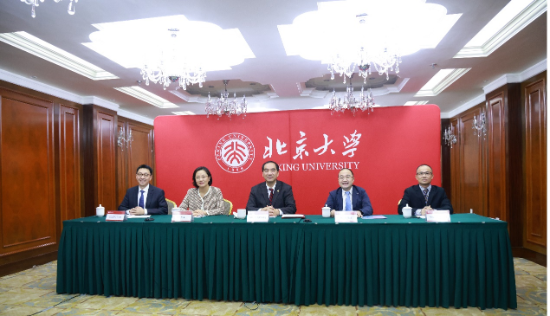
Offline meeting at Peking University
Gong Qihuang noted that big data and AI technologies are profoundly reshaping the landscape of teaching, research, and administration within the international higher education community. Following the Digital Intelligence International Development and Innovation Education Forum last November, the inaugural work meeting of DI-IDEA plays a significant role in fulfilling the Alliance’s founding purposes. It puts into action the Forum’s outcomes and further enhances exchanges and cooperation between stakeholders. Gong hopes that DI-IDEA members will work together to establish an open, inclusive, and innovative international platform, fostering a bright future for global higher education.
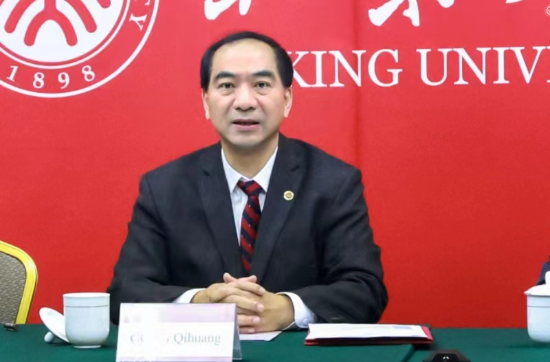
Speech by Gong Qihuang
Sun Hua, Secretary General of the DI-IDEA and Director of the Center for Excellent Teaching and Learning of Peking University, introduced the Alliance’s organizational structure, Charter, work mechanisms, 2024 work plan, and events scheduled for the year. He called on DI-IDEA members to proactively contribute their ideas and resources, so as to streamline the work plan and enrich the events.
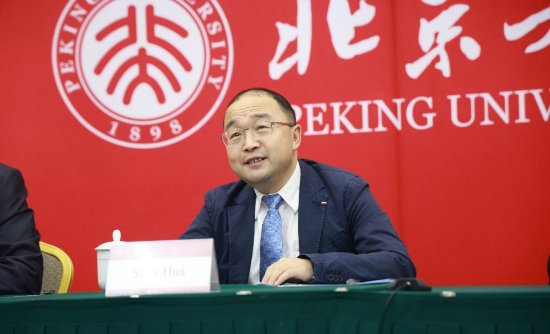
Speech by Sun Hua
During the open discussion session, Scott MacGregor, Vice-Principal of the University of Strathclyde, expressed his appreciation for the productive meeting and his enthusiasm for further exploring and implementing transformative educational strategies. Prof. Sebastian Link, Associate Dean of the Faculty of Science at the University of Auckland, talked about the university’s online learning platform. He hopes that the DI-IDEA’s platform and technology will offer students a larger number of flexible and innovative learning options. Kevin Martin, Managing Director of the Digital Education Futures Initiative at Cambridge, introduced a theme event scheduled for late March, “AI-Powered Pedagogy: Designing the Future of Education.” Lotfi Romdhane, Associate Dean for Graduate Affairs and Research at the American University of Sharjah, highlighted the university’s innovation in educational technology and its top-tier AI resources. He reaffirmed the university’s commitment to contributing to the DI-IDEA. Wuhan University and Southeast University showcased their achievements in digital intelligence education and expressed their readiness to share their resources with DI-IDEA members.
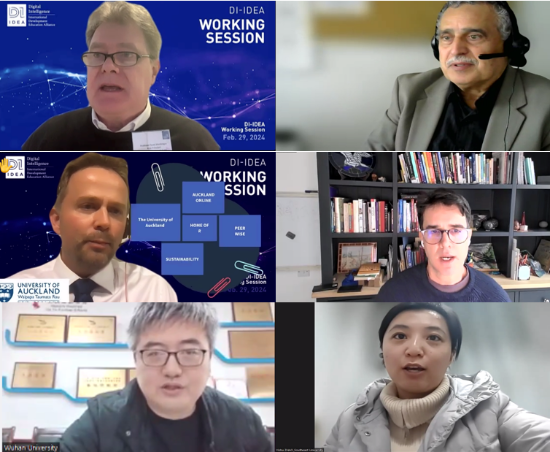
Open discussion among university representatives
DI-IDEA members conducted in-depth discussions about the Alliance’s development, with unanimous consensus reached on the profound influence of this meeting. Utilizing the DI-IDEA’s strengths and cooperation framework, its members will work together to tackle the significant challenges that humanity faces in the era of digital intelligence, while seeking new opportunities to reshape the future of education.
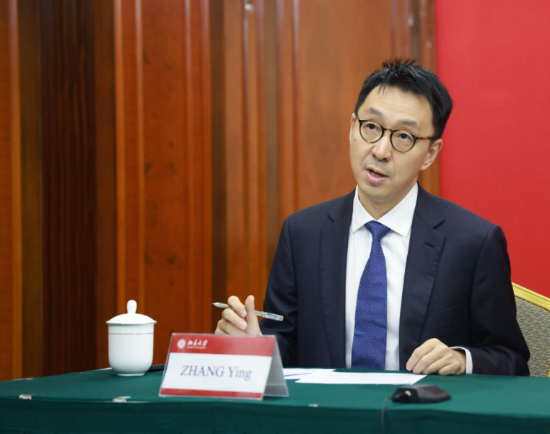
Zhang Ying chairing the meeting
The meeting was chaired by Zhang Ying, Associate Dean of the Guanghua School of Management and Director of the Guanghua Digital Education Center at Peking University. Attendees from Peking University included Director Li Yun and Deputy Director Cui Zhe of the Office of International Relations, and Deputy Director Wang Zhouyi of the Center for Excellent Teaching and Learning.
